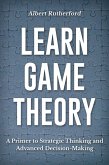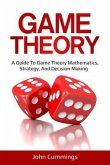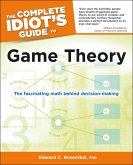Despite the growing consensus on the need for action to counteract climate change, complex economic and political forces have so far prevented international actors from making much headway toward resolving the problem. Most approaches to climate change are based in economics and environmental science; in this book, Parkash Chander argues that we can make further progress on the climate change impasse by considering a third approach-game theory.
Chander shows that a game-theoretic approach, which offers insight into the nature of interactions between sovereign countries behaving strategically and the kinds of outcomes such interactions produce, can illuminate how best to achieve international agreements in support of climate-change mitigation strategies. Game Theory and Climate Change develops a conceptual framework with which to analyze climate change as a strategic or dynamic game, bringing together cooperative and noncooperative game theory and providing practical analyses of international negotiations. Chander offers economic and game-theoretic interpretations of both the Kyoto Protocol and the Paris Agreement and argues that the Paris Agreement may succeed where the Kyoto Protocol failed. Finally, Chander discusses the policy recommendations his framework generates, including a global agreement to support development of cleaner technologies on a global scale.
Chander shows that a game-theoretic approach, which offers insight into the nature of interactions between sovereign countries behaving strategically and the kinds of outcomes such interactions produce, can illuminate how best to achieve international agreements in support of climate-change mitigation strategies. Game Theory and Climate Change develops a conceptual framework with which to analyze climate change as a strategic or dynamic game, bringing together cooperative and noncooperative game theory and providing practical analyses of international negotiations. Chander offers economic and game-theoretic interpretations of both the Kyoto Protocol and the Paris Agreement and argues that the Paris Agreement may succeed where the Kyoto Protocol failed. Finally, Chander discusses the policy recommendations his framework generates, including a global agreement to support development of cleaner technologies on a global scale.
Dieser Download kann aus rechtlichen Gründen nur mit Rechnungsadresse in A, D ausgeliefert werden.









